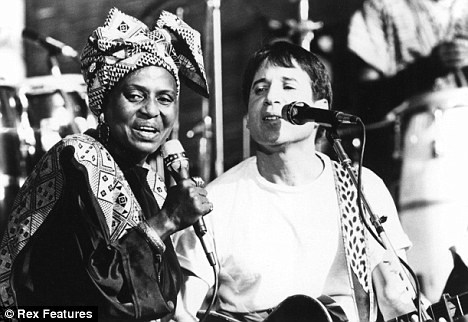Paul Simon’s Graceland is a classic rock album infused with South African influences, one that is still celebrated today. The album contains countless hits including “You Can Call Me Al” and “Diamonds On The Soles of Her Shoes”. There is no doubt that this album is a triumph of music. However, the historical context surrounding the album, tied up in its very existence, is highly controversial; at the time that Graceland came out, South Africa was in the midst of the oppressive Apartheid regime. Paul Simon’s decision to center Graceland around South African artists and sounds during this historical crisis has long been a source of debate.
The Apartheid state began in South Africa after the National Party won the 1948 elections. This all-white governing body instituted a series of segregationist policies known as Apartheid, the Afrikaans word for “apartness”. At the start of Apartheid, around 70% of South Africa’s population was black; the ruling powers made up a mere fraction of South Africa’s inhabitants. Despite their minority share of the population, the white National Party subjugated and suppressed black South Africans. Mixed-race marriages were banned, public spaces were segregated, and nonwhite citizens were forced to carry certifications of their identity wherever they went. Evidently, this was a tragic time in South Africa’s history.
Internationally, the National Party’s system of Apartheid was condemned. In 1980, the United Nations instituted a boycott “to prevent all cultural, academic, sporting, and other exchanges with South Africa”. Paul Simon’s Graceland was released six years later, in clear violation of this boycott. This decision was extensively debated, and still remains a source of controversy today. The album was recorded in South Africa, centers hallmarks of South African musicality, and features South African artists including the Boyoyo Boys and Joseph Shabalala. This decision was a weighty one. On one hand, Simon argued that this choice promoted South African music and culture, separate from its repressive government. Featured artists gained recognition for their contributions to the album, launching their careers thereafter. Hugh Masekala, a South African anti-apartheid rebel, supported the creation of Graceland because he said it reunited South African musicians and brought their music and culture out of limbo. Although this was undoubtedly a positive effect of Simon’s breaking of the boycott, there were also negative consequences. During the recording of the album, the black artists involved were put into jeopardy when recording went late and they were forced to break imposed curfews. Simon noted a palpable tension, saying “there would be an uncomfortable time when the players couldn’t concentrate until they knew there might be a car to take them home”. Dali Timbo, a South African member of the Artists Against Apartheid movement, said Paul Simon promoted a few artists at the expense of the liberation of the entire country. He, along with many others, believed that Simon’s actions tainted a greater act of solidarity.
Ultimately, it is unclear whether or not Paul Simon made a moral or responsible decision in breaking the cultural boycott to produce his hit album Graceland. However, regardless of this debate, Graceland is an album deeply entrenched in history. It is a vestige of a reprehensible time in history and of the suffering and degradation of a rich culture. Today, we can view Graceland as a reminder of the tragedy in South Africa and a warning to never repeat the same mistakes.







